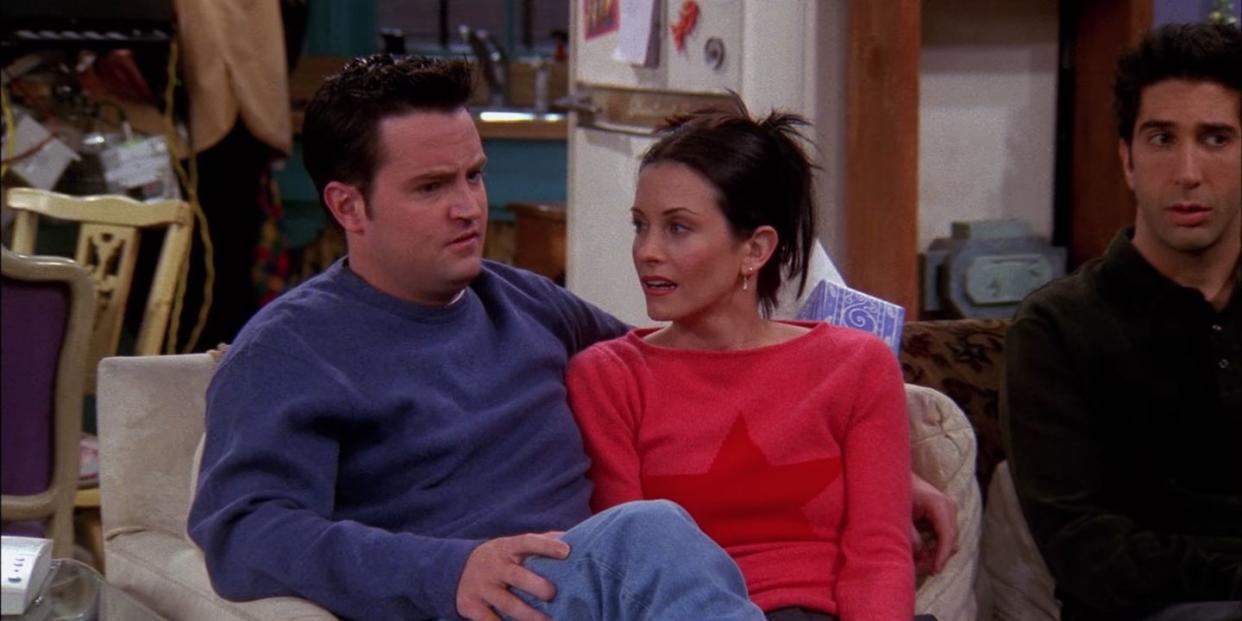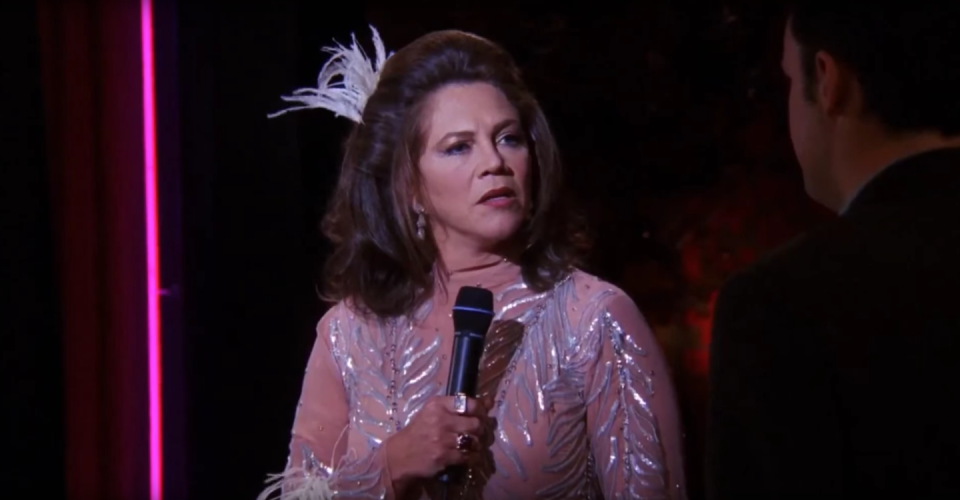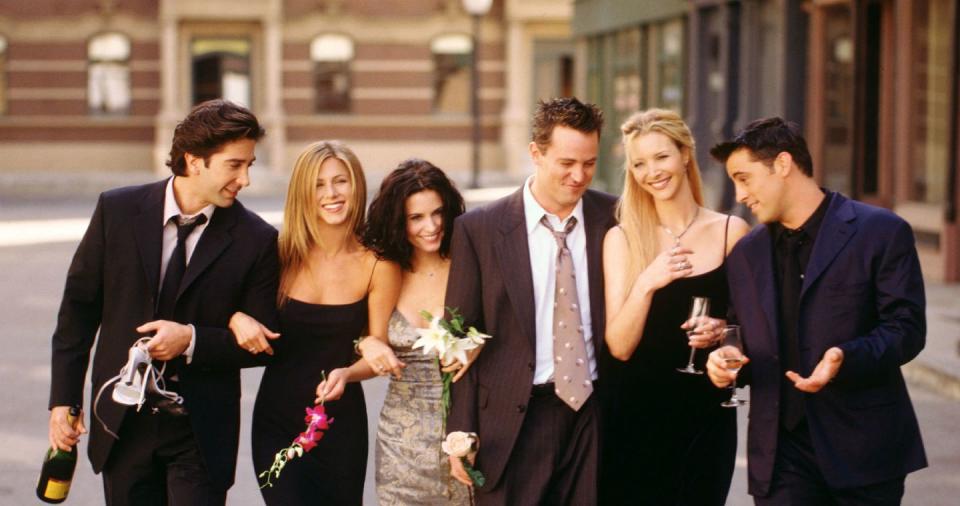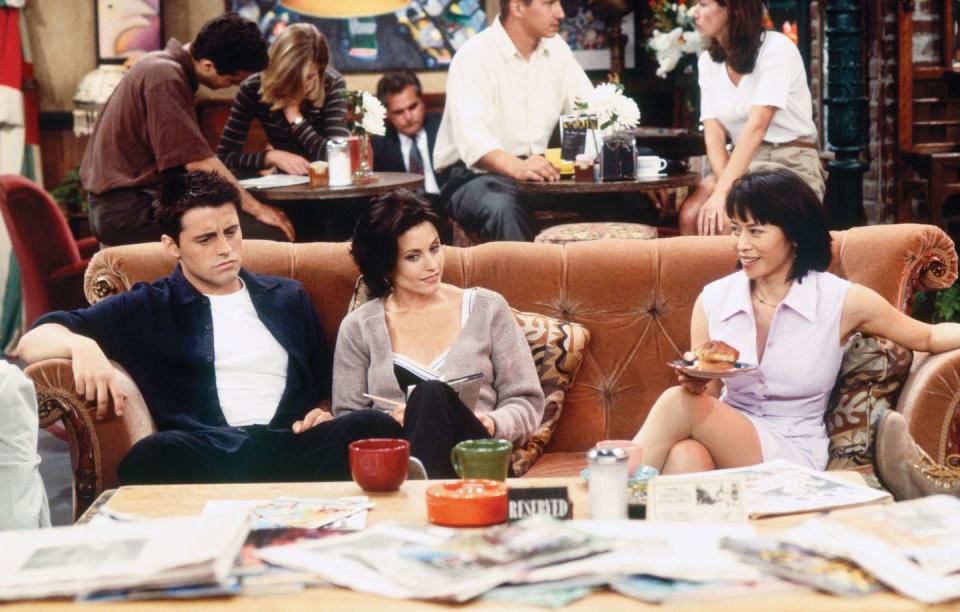Calling out problematic TV shows like Friends can be an issue in itself

'The one with the transphobia'. 'The one with the sexism'. 'The one with the homophobia'.
Those are probably not episodes of Friends that you can immediately recall, but they're undeniably in there, scattered throughout the sitcom's 10 seasons.
There's also a staggering lack of diversity throughout the 236 episodes – the central six characters are all white and the only two people of colour who featured were Julie (Lauren Tom), an Asian-American actor with Chinese heritage, and Dr Charlie Wheeler (Aisha Tyler), an African-American actor.

But you know all this already. Those are just a handful of issues that have become part of the wider conversation surrounding the show in recent years as the original audience has been made aware by a new generation of viewers of its previous blind spots.
Standing where we are now forces us to reevaluate every punchline. It's that distance which makes Chandler's fear of being perceived as gay and his cutting remarks about his transgender father all the more stark. The endless taunts directed at Monica's weight, both to her and out of earshot, and Ross's inability to process that his daughter's nanny is a man (before drawing the conclusion that he must surely be gay), jar with what we thought we felt about Friends: there's a lot that isn't funny, not even close.

So the conclusion many have come to is that Friends as a thing should be cancelled. Put it in the bin. But others, such as writer Rebecca Reid, warn against forgetting when these shows were made.
"It's really dangerous to start looking at stuff that was written a long time ago through the lens of what we do now," she told BBC Radio 5 live.
Mike Ward, TV critic for the Daily Star, told BBC News last year: "If you take it at face value and apply modern-day sensibilities to it and look at it as someone who went out to make it in 2018, you would be shocked. We have to be grown up about this. We have to look at perspective and look at the context in which it was made.
"It's fine to say it's uncomfortable by today's standards but if you're not careful you look at the world from an insular, narrow perspective."

These conversations are important, no-one's denying that. They're integral to ensuring that the same mistakes are not repeated, and that minorities and marginalised groups are no longer the butt of the joke.
But as we push to get it right, highlighting the flaws laced throughout shows like Friends (and many others), a question arises: where does the backlash stem from?
It sounds like a straightforward query, so glaringly obvious, in fact, that it doesn't need an explanation. Audiences are repulsed by offensive remarks that were once deemed humorous enough to make it into the final script.
Its critics are right. The sitcom trips up, time and time again. But who are they tearing it apart for? Among the privileged majority of viewers, at least, is it really a genuine concern about how certain groups are treated? Or something else?

In Aziz Ansari's Netflix special Right Now, released earlier this year, one of the topics the comedian delves into is the concerted effort by white people to adopt progressive values and fight for racial and social justice, to be more woke – a term whose roots lie in African-American culture. But it's not a pat on the back. It's a deep dive into how that attitude, in itself, can be a misstep.
"White people... are trying really hard to be nice to minorities in a way I've never seen before," he says. "Putting in the time. Putting in the effort. Getting out there. Watching Crazy Rich Asians."
You see where he's going.
"It's coming from a good place, but some people are acting weird, man. I asked this one lady. I was like, 'You see Crazy Rich Asians?' She was like, 'Yeah'. I was like, 'You like it?"
Her answer: "I actually didn't see it. I'm sorry."
"What are you lying for?" bellows Ansari. "What did you think I was going to give you? Some cookies?"

Another person he spoke to about Crazy Rich Asians told him that at first, it didn't win him over. But then he watched the film again with one of his Asian friends, saw how much she valued seeing herself represented on screen, and that made him really like the film.
Ansari calls it out for what it is: "a weird, condescending, sh*tty thing to say".
He isn't here to congratulate you for "trying really hard to be nice to minorities", even in spite of all your calls to action and declarations of wokeness – and the same can be said for Friends.
Let's have conversations about where the sitcom – and myriad others– have gone wrong, however painful that might be for super fans who map so much of themselves and their lives against the course of the show.

But plundering the concerns we see reflected in Friends to boost our own personal stock isn't so remote from using LGBTQ+ people as a punchline. Grandiose statements which are more about how we, as individuals, are beacons of light, are just as obnoxious as the homophobia or fatphobia we're claiming to challenge.
Attacking the past is essentially trivial – meaningless in fact, given that it can't be changed – unless it informs our behaviour in the present.
While there's value in highlighting mistakes made by old TV shows, simply pointing them out isn't enough. In fact, you could argue that it's a displacement activity: we nitpick and chatter about Friends so that we don't have to inspect our own behaviour right here and now too closely.
25 years from now, the kids born in 2019 will be combing through our old Facebook posts and Tweets and being horrified at us. We're all guilty right now of innumerable crimes against the acceptable opinions of the future.
It's just that, unlike Friends, the future hasn't caught up with us yet.
Want up-to-the-minute entertainment news and features? Just hit 'Like' on our Digital Spy Facebook page and 'Follow' on our @digitalspy Instagramand Twitter account.
You Might Also Like

 Yahoo News
Yahoo News 
